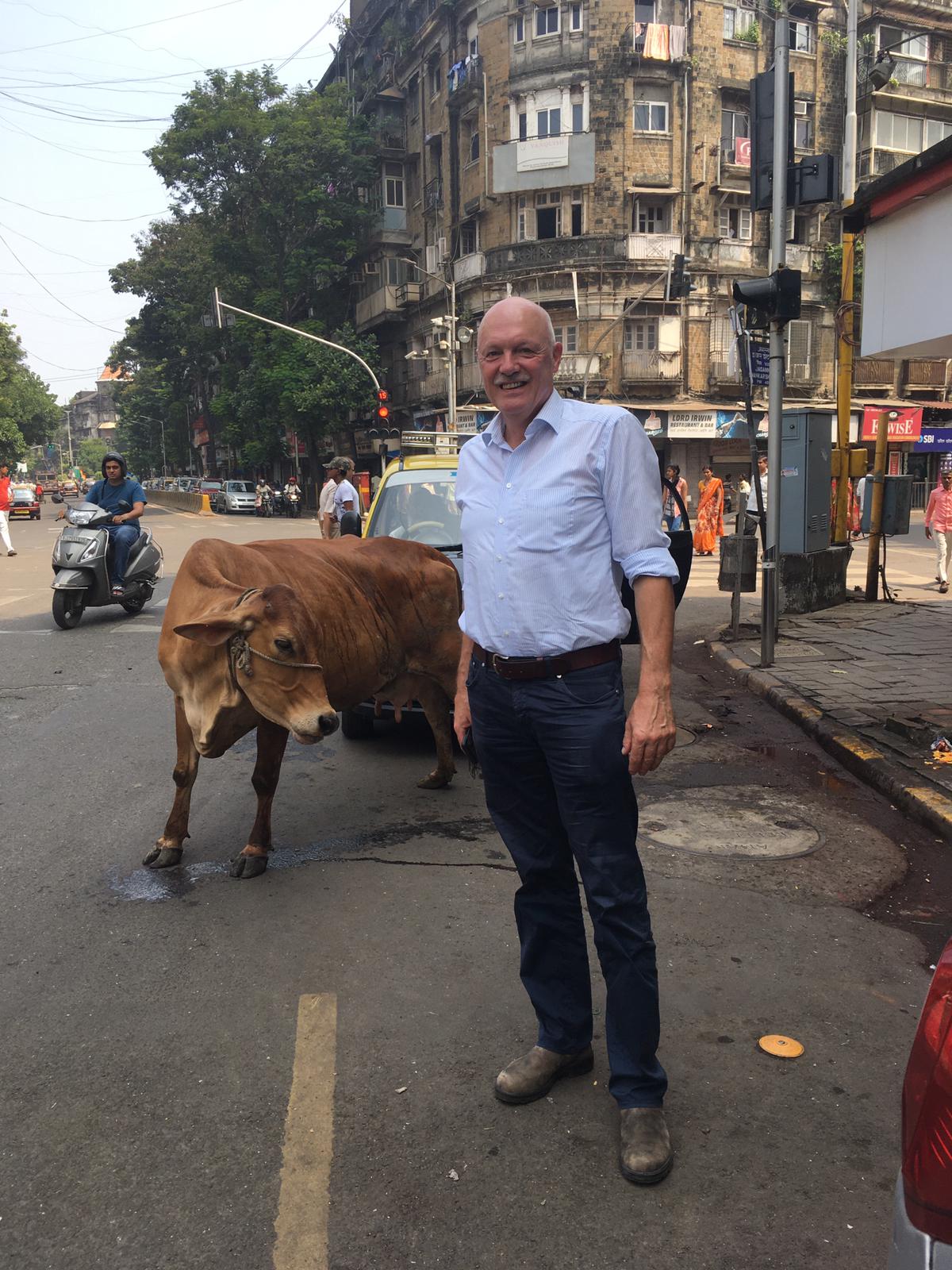Kantens is a very small rural village in the north of the Netherlands. About five kilometres from the Wadden Sea, a purely agricultural region. Sometimes I say, perhaps one of the last agricultural regions in the Netherlands in the future.
The Netherlands is developing, growing in population, urbanising. It is the second largest agricultural exporter in the world, after the US. This is also partly because many products are produced from agricultural raw materials from other parts of the world. But still, the Netherlands produces a lot and leads the way in sustainable production methods. We are, అయితే, moving more and more towards producing “specialities”, nothing wrong with that, I think.
 We operate a dairy farm, a real family business, www.hunsingodairy.com. It has existed for many generations. Dairy, పాలà±, cheese: it’s in the genes of the Dutch. In terms of dairy products, we export roughly 70%, although a very large share goes to Germany. If you talk about distances, you can also call it local.
We operate a dairy farm, a real family business, www.hunsingodairy.com. It has existed for many generations. Dairy, పాలà±, cheese: it’s in the genes of the Dutch. In terms of dairy products, we export roughly 70%, although a very large share goes to Germany. If you talk about distances, you can also call it local.
With that large export share, as a country, I also ended up in the international business a bit automatically. It is also my passion. I think it is fantastic to share knowledge about cows, about milk processing. Milk is almost always produced from products that are of no use to humans. And milk can be made into such beautiful products that also have a very good nutritional value.
Since a few months I am a member of Global Farmer Network (GFN). It was not entirely clear to me what to expect. The introduction week in Brussels brought me a lot personally. Especially the contact with the other members, but also the somewhat “un-Dutch” approach.
I knew how large-scale farming was in certain areas of the world. But if you really talk to those farmers, at the GFN introduction session, you get a much better picture. Their opportunities, their threats and their role in “Feeding the World”. They often have a different opinion about GMO, fertilizers and crop protection products. That relevance has become clearer to me. Even when we discussed that with our colleagues from the African continent.
 In highly developed countries I see a certain “arrogance” of the people, when I discussed topics around “feeding the worldâ€. They have all an opinion about GMO, about fertilizers and about crop protection agents. In our country, and even in other Western European countries, the well-educated people, people with the higher incomes, many decision makers, they are against GMO, pesticides, and fertilizer—but on the other hand they are aware (maybe not all) of the situation in Africa, à°à°¾à°°à°¤à°¦à±‡à°¶à°‚, Bangladesh—hungry, poor child nutrition.
In highly developed countries I see a certain “arrogance” of the people, when I discussed topics around “feeding the worldâ€. They have all an opinion about GMO, about fertilizers and about crop protection agents. In our country, and even in other Western European countries, the well-educated people, people with the higher incomes, many decision makers, they are against GMO, pesticides, and fertilizer—but on the other hand they are aware (maybe not all) of the situation in Africa, à°à°¾à°°à°¤à°¦à±‡à°¶à°‚, Bangladesh—hungry, poor child nutrition.
With that “arrogance” opinion and attitude, we are not going to feed the world. That is clear!
One of the most remarkable things I have observed in Brussels is the opinion on GMO, on fertilizers and on pesticides. I have started to think differently about that. When I talked to the African people, they need GMO, à°Žà°°à±à°µà±à°²à±, and pesticides!! To realize acceptable crop yields.
In the coming decades, most development will take place around the equator. Economic development, population growth, etc. Now, that is a difficult region for food production. The further away from the equator, the better the climatic conditions for agriculture.
 At our farm in the Netherlands, we use non-GMO soy for our high producing cows. Why? It is especially for the German market, cheese. These consumers can afford the higher cost for “non-GMO cheeseâ€.
At our farm in the Netherlands, we use non-GMO soy for our high producing cows. Why? It is especially for the German market, cheese. These consumers can afford the higher cost for “non-GMO cheeseâ€.
What we realize on our farm with lower amount of fertilizer is amazing. I speak about a combination of better crop varieties, better techniques. I am sure there are so many innovations on the way that we can implement all over the world. Some day. But before then we must feed the world, we as farmers are the basis. I am sure we need GMO, fertilizers, and pesticides in certain regions, now! Why? I spoke with farmers!!!
Last week I spoke with four dairy farmers from Ethiopia. Enthusiast, clever, entrepreneurs. Strong demand of quality milk in Ethiopia. The discussion was all about the lack of knowledge, best practices, management—I think it takes many years if I talk with these guys about cow comfort, climate neutral, antibiotic free, longevity.
I really believe in the international approach of this very special platform, the Global Farmer Network. Communication is important.


